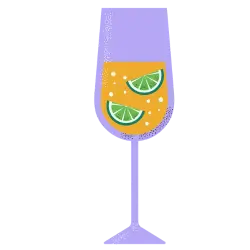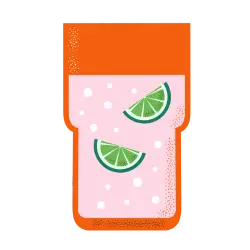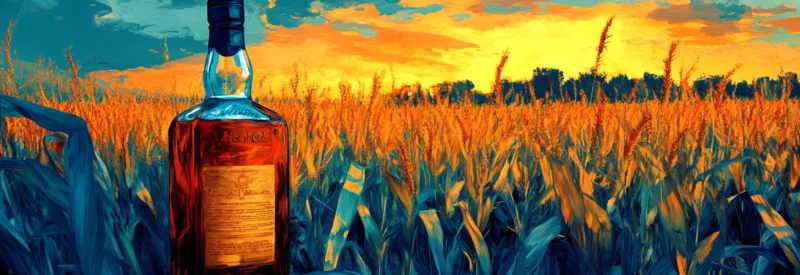In recent years, Iowa’s liquor industry has hit record highs, with more than $445 million in sales in 2023.[1]Telegraph Herald. “‘Cocktails are king’: Iowa liquor sales continue to rise,” Accessed September 27, 2024. The beverage sector in the state is booming. For entrepreneurs in the alcohol industry, Iowa offers a range of opportunities. However, the liquor licensing process in Iowa is different from that in many other states. The cost of your liquor license changes based on the population of your city and the length of the license. Understanding how to approach the liquor licensing process in Iowa is essential to avoid delays.
In this guide, we explore the types of liquor licenses in Iowa, the requirements, the cost of liquor licenses, how to get a liquor license, and other related topics. Read ahead if you’re ready to enter Iowa’s beverage industry!
Types of Iowa Liquor Licenses

For this guide, we’ll focus on retail liquor licenses in Iowa. These licenses allow businesses to sell alcohol on various premises, from retail stores to restaurants and bars. Let’s explore all the retail alcohol licenses:

On-Premises Retail Licenses
If you want your customers to consume alcohol at a venue, you need an on-premises retail license. Let’s explore the options:
- Class “C” Retail Alcohol License (LC): This license allows the sale of wine, beer, and liquor for consumption on the premises and carry-out sales of mixed drinks, wine, beer, and liquor.
- Special Class “C” Retail Alcohol License (BW): This license permits the sale of wine and beer for consumption on the premises and wine and beer carry-out sales.
- Class “F” Retail Alcohol License (LF): This license permits non-profit clubs to sell beer, wine, and liquor for on-premises consumption. Sales are only permitted to members and guests; the non-profit cannot sell to the public.
- Class “D” Retail Alcohol License (LD): This license permits common air carriers, boats carrying passengers, and railroads to sell beer, wine, and liquor for on-premises consumption.
- Special Class “C” Retail Native Wine License (WCN): This license permits the sale of native beer and wine for consumption both on and off-premises. It is only available for 12 months.
- Charity Beer, Spirits, and Wine Special Event License (CE): This license permits non-profit entities to auction wine, beer, and liquor at events to raise funds for charitable, religious, and educational purposes. It also permits non-profits to host an event for charity and serve alcohol using another business’s retail alcohol license. This license expires after 36 hours.

Off-Premises Retail Licenses
If you want to sell alcohol for consumption off-premises, there are other licenses available. Let’s explore the options:
- Class “B” Retail Alcohol License (LG): This license permits the sale of wine and beer for consumption off the premises (not by the drink). It also allows some wholesale sales, provided specific conditions are met. This is a popular license type for grocery stores, liquor stores, and convenience stores.
- Class “E” Retail Alcohol License (LE): This license permits the sale of wine and beer for consumption off-premises (not by the drink). It also allows some wholesale sales, provided specific conditions are met (these conditions are different than those for the Class “B” Retail Alcohol License (LG)).
- Special Class “B” Retail Native Wine License (WBN): This license permits the sale of Iowa native wine for consumption off-premises (not by the drink).

What type of liquor license do I need?
The type of Iowa liquor license your business requires varies depending on the type of alcohol, the type of premises, and other factors. Unlike other states, which often have a standard 12-month period for liquor licenses, Iowa has four different liquor license expiry options for many of its license types: 12-month, 8-month, 14-day, and 5-day. This provides increased flexibility for seasonal businesses and temporary events. Choose the expiry period that’s best for your business’s needs. For liquor, convenience, and grocery stores, the type of liquor license required varies depending on the square footage of your premises. You can find a full list of licenses, license durations, and square footage requirements on the Iowa Department of Revenue website.
Liquor License Requirements for Iowa
If you apply for a liquor license in Iowa, you should understand the liquor license requirements before you start applying:
- The applicant must be a US citizen and an Iowa resident. Or the entity must be incorporated to do business in the state.
- The liquor license applicant cannot have a felony conviction (exceptions apply if the applicant’s felony conviction is more than five years old and their rights as a citizen have been restored).
- The applicant cannot have any financial interest in a liquor license that has been revoked within the previous two years.
- The applicant must be able to pass an assessment to determine they have adequate financial standing and a good reputation.
- The premises must be under the control of the applicant.
- The premises must be in a good condition.
- For on-premises consumption, the premises must have tables and chairs to seat at least 25 people.
Be sure to review the full list of requirements for Iowa liquor licenses to ensure you don’t miss anything.

Other necessary permits
Depending on the type of liquor license your business has, you may also need additional permits, such as:
- Sales Tax Permit
- Food Establishment or Food Service License
- Federal Special Occupational Tax Permit
- Federal Wholesalers Basic Permit
Likewise, your local municipality may have its own business permit requirements.
Understanding Liquor Laws in Iowa
Understanding Iowa liquor laws is essential if you want to start a business in the beverage industry. Let’s explore some key liquor laws you must follow:
- You must not serve alcohol to anyone under the age of 21. Failing to adhere to this law can result in a simple misdemeanor and a fine of up to $1,925.[2]Iowa Department of Revenue Alcohol & Tax Operations Division. “Minors and Alcoholic Beverages” Accessed September 27, 2024.
- A licensee’s employees must be at least 16 to sell liquor, wine, and/or beer in original and unopened containers (and it must be for consumption off-premises).
- A licensee’s employees must be at least 18 to sell or dispense beer, wine, and liquor for the purpose of on-premises consumption, for example, in a bar or restaurant. There are some instances in which a 16 or 17-year-old can sell and serve alcohol in a restaurant setting, but conditions must be met.
- A licensee’s employees must be at least 21 to deliver beer, wine, or liquor (in unopened containers) to a home or location off-premises.
- You can only sell or serve alcohol from 6 AM to 2 AM (Monday to Sunday)
Refer to the full summary of Iowa liquor laws on the Department of Revenue website for more information.
How Much Does a Liquor License Cost in Iowa?
So, how much is a liquor license in Iowa? As mentioned previously, Iowa has a unique cost structure for its licenses. Prices vary depending on the size of the city and the length of the expiry period. For example, a 12-month Class “C” Retail Alcohol License costs $1,625.00 within cities of more than 15,000 residents but $715.00 within cities of less than 2,500 residents. For off-premises liquor licenses, such as for liquor stores and grocery stores, the cost varies depending on the square footage of the premises.
Let’s explore the full range of prices for on-premises and off-premises retail liquor licenses in Iowa:
- On-Premises Alcohol License Pricing Range: $24.38 – $1,625.00
- Off-Premises Alcohol License Pricing Range: $75 – $7,500
How to Apply for a Liquor License in Iowa
Fortunately, Iowa has an online application portal for liquor licenses. The portal you use varies depending on the type of liquor license you’re applying for. If you’re applying for a Class “C” (LC), Special Class “C” (BW), Class “B” (LG), or Class “E” (LE), you must apply using GovConectIowa. If you’re applying for other liquor licenses, you must use eLAPS.
Create an account and follow the instructions in the application portal. For some licenses, you must upload additional documentation, such as Proof of Control of Property, Sketch of Premises, and more. You can find a full list of the required documentation online.
Once you submit an application, you must also apply to the local municipality where your business is located. Each municipality may have separate requirements, so make sure to check them before you begin the application process. For most licenses, you can check your application progress on the eLAPS platform after you apply.
How to Renew Your Iowa Liquor License
As mentioned, the license periods in Iowa are different from those in many other states. You can apply for four license periods: 12-month, 8-month, 14-day, and 5-day. If you have a 12-month license, you will have the option to renew it annually.
The renewal process varies depending on your local authority, but your business should receive a renewal notice 70 days before your license expires. Again, the renewal requirements vary depending on the local authority where your business is located. For example, some local authorities may require you to renew your license 60 days before it expires.
Getting a Beer and Wine License in Iowa: Closing Thoughts

As Iowa government authorities have strict control over the sale and distribution of alcohol in the state, they release detailed figures annually regarding beverage consumption, making it easy for entrepreneurs to track trends in the market.[3]Y105. “Annual Report Shows the Most Popular Alcoholic Beverage in Iowa.” Accessed September 27, 2024. If you’re ready to tap into the lucrative beverage industry in Iowa, you should begin your liquor license application as quickly as possible to avoid delays.
You must also find a payment processor to facilitate credit card payments in your new business. Your best bet is to find payment processing services that cater to bars and restaurants. Fortunately, PaymentCloud offers payment processing to businesses with liquor licenses. In addition to providing merchant accounts, they also offer industry-specific tools, hardware, chargeback protection, and 24/7 support.
FAQs
How long does it take to get a liquor license in Iowa?
It usually takes between 30 and 120 days to get a liquor license in Iowa, but many licenses are issued within 45 days. Always plan ahead if you are opening a beverage business or plan to host an event with alcoholic drinks.
Do you need a liquor license to sell beer or wine in Iowa?
Yes, you need the correct alcohol license to sell beer or wine in Iowa. The license you require will vary depending on whether you’re selling beer for on-premises or consumption off-premises.
Is it hard to get a liquor license in Iowa?
Iowa doesn’t have quotas on liquor licenses, so it’s not a major challenge to obtain one in the state. As long as you meet Iowa’s licensing requirements (i.e., you have not been incarcerated, you have control over your premises, etc.), you shouldn’t have any problems. Also, unlike many other states, Iowa authorities provide detailed information about liquor licenses, license fees, application processes, and more.
How long does an Iowa liquor license last?
How long your Iowa liquor license lasts depends on which license length you apply for. Most liquor licenses in Iowa have four options: 12 months, 8 months, 14 days, and 5 days. This means Iowa beverage businesses have a great degree of flexibility when applying for liquor licenses. However, some liquor licenses are only available on an annual basis. Make sure to check the options available for your license type.
How do I get a temporary or one-day liquor license in Iowa?
Iowa offers several different options for organizations wanting a temporary liquor license. Many liquor licenses in Iowa have 5-day and 14-day options. Depending on the length of your event, either of these license choices may be suitable. There’s also a 36-hour license option available to charitable organizations hosting events that meet specific criteria.




